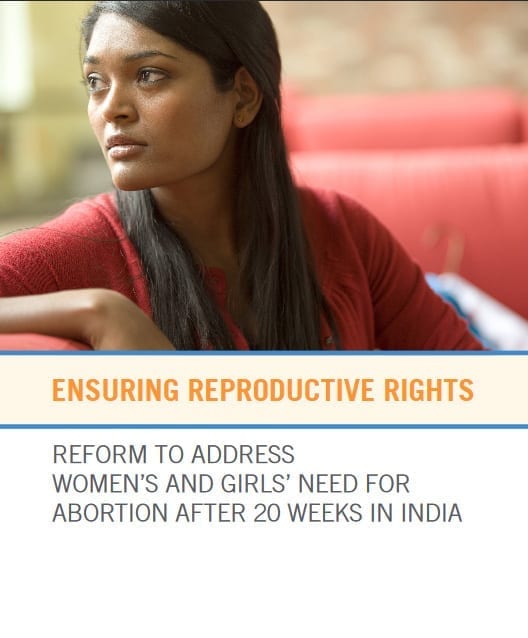Progress on Accountability for Maternal Health Care and Mortality in Bihar, India
In India last month, the Division Bench of Patna with the State High Court of Bihar (High Court) handed down an order holding the state responsible for
failing to protect, respect, and fulfill the rights of pregnant women. The panel is requiring the government to account for nearly $680 million from a
national program called the National Rural Health Mission that is supposed to fund maternal health initiatives, among other health care imperatives.
The government must respond with an expense report by April 9 to prevent further harm to women’s maternal health by the mismanagement of these funds
and put the program on a solid course.
The Center for Reproductive Rights’ partner, Human Rights Law Network (HRLN), is providing legal representation to the Centre for Health and Resource
Management (CHARM), the local organization that has brought the case against the
state government of Bihar. This case is part of a national state high court litigation strategy to hold the government of India legally accountable for
preventable maternal deaths.
Bihar is plagued with one of the highest maternal mortality rates in the world-about 300 deaths occur for every 100,000 births. (For comparison sake,
Switzerland has only five deaths, the U.S. eight.) India created the National Rural Health Mission in 2005 in part to combat this very problem but, as
revealed by the facts in this case, nothing much has changed on the ground.
Bihar continues to fail pregnant women across a range of measures. While the state receives significant funding from the central government, HRLN found
that health centers, including the second-highest referral hospital in Bihar, don’t have enough iron, folic acid, blood, or equipment required to
support and monitor a pregnant woman’s health. And there is nowhere near the staffing or infrastructure needed to ensure that women experience safe
childbirths. HRLN lawyers on a fact-finding mission in the Munger district of Bihar documented that health facilities lacked enough beds, electricity,
running water, and toilets. These findings are emblematic of the conditions found across the state.
A report by the Fifth Common Review Mission of the National Rural Health Mission found that state mismanagement has led to a high incidence of
avoidable maternal death.
This is a strong example of accountability in action, and if not for the CHARM case, the Bihar government probably would not have been
questioned about the troubling situation in its state hospitals nor asked to provide an explanation for seemingly misappropriated funds. The High
Court’s order is not final, but it is most certainly a step in the direction that should eventually see Bihar women getting the care they need while
pregnant as well as childbirth becoming a safer, healthier experience.

